This is the fifth article in a six-part series about Hua Hin, Thailand, a coastal city near Bangkok on the Gulf of Thailand. This post is about Wat Khao Takiap in Hua Hin Town. Hua Hin hosts the annual King’s Cup Elephant Polo Tournament, a fun and unique sporting event. The 2012 tournament inspired me to write the children’s picture book Ellie the Elephant about an elephant that dreams of playing in the tournament. Enjoy these travelogues about this fascinating area of Thailand.
Wat Khao Takiap is a Buddhist temple complex on “Chopsticks Hill” (Khao Takiap) south of Hua Hin Town center. One of the most recognizable temples in Hua Hin, it straddles a 272-meter (890 feet) tall hill that juts out into the Gulf of Thailand and is visible from beaches to the north and south.
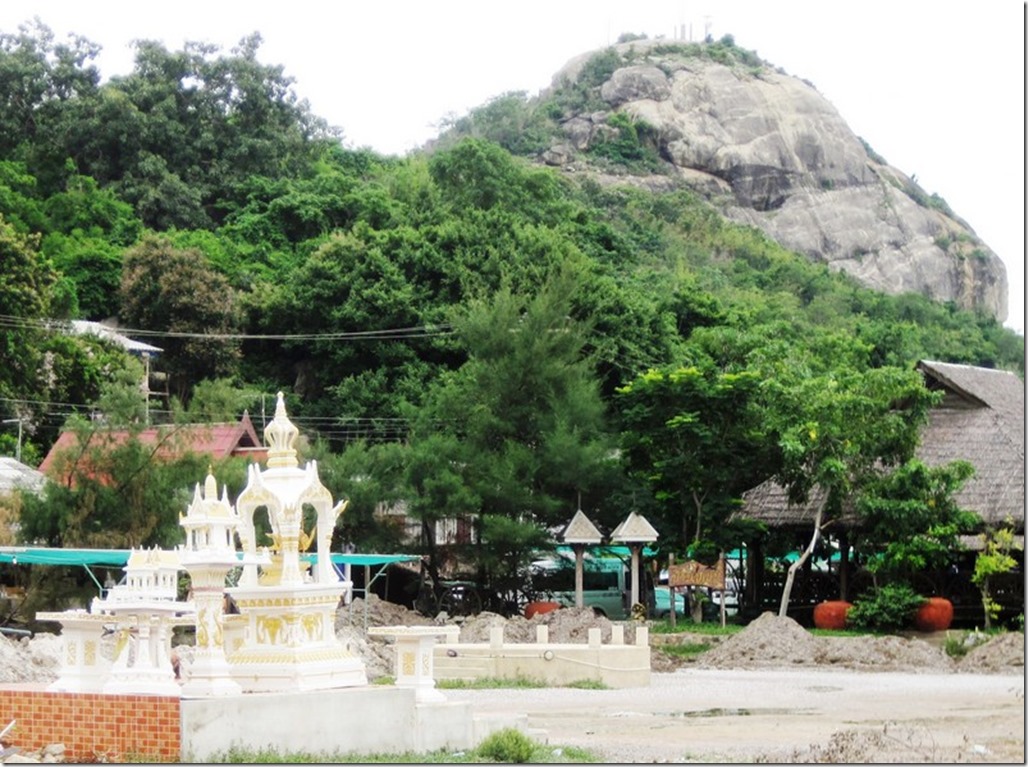
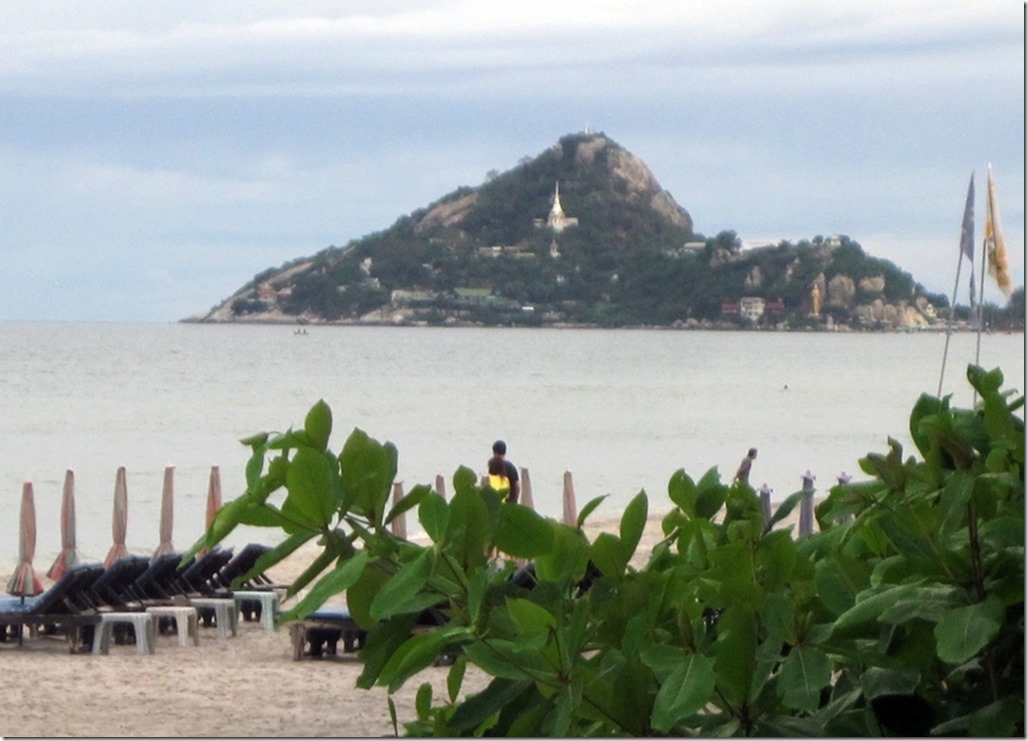
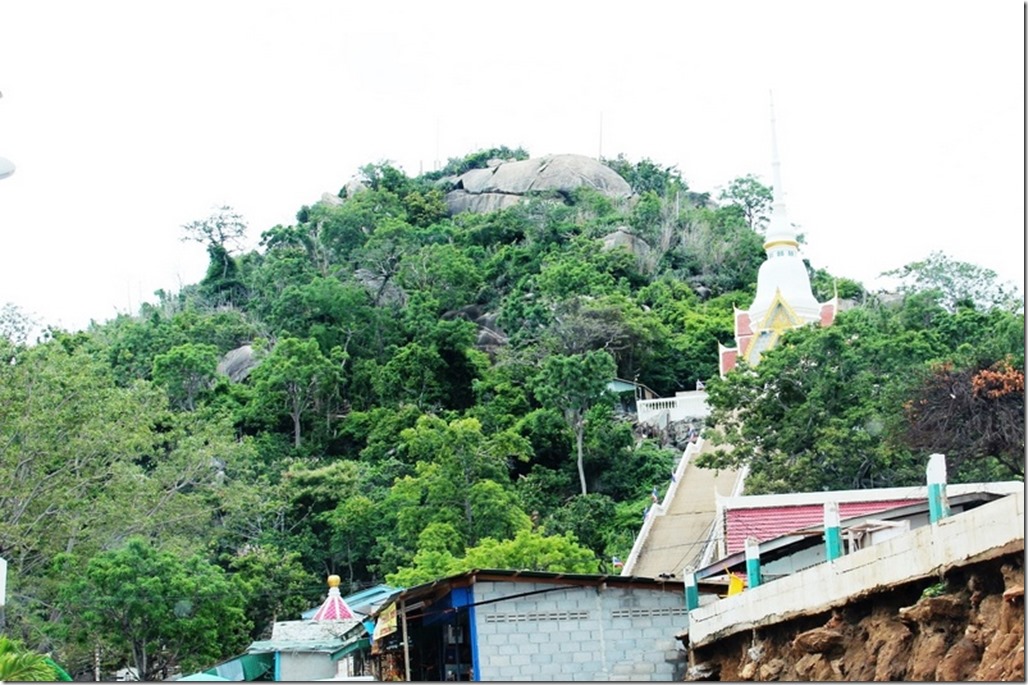
A shrine shaped like a blooming white lotus flower sits halfway up the hillside. Although the 80 or so steps to it are a quick workout, one can drive to a parking lot part way up Chopsticks Hill. The view from the shrine and the shrine itself are both picturesque.
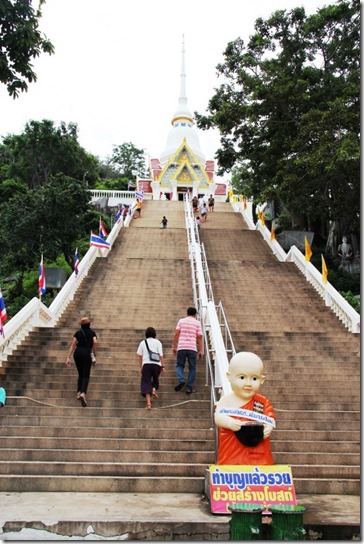
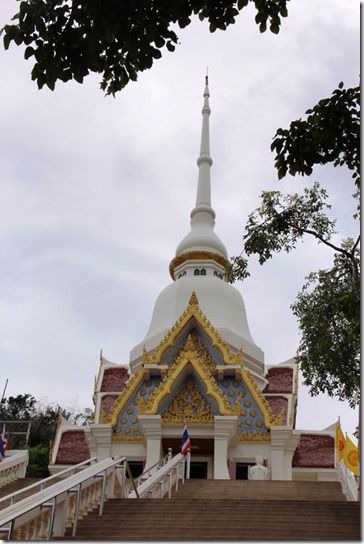
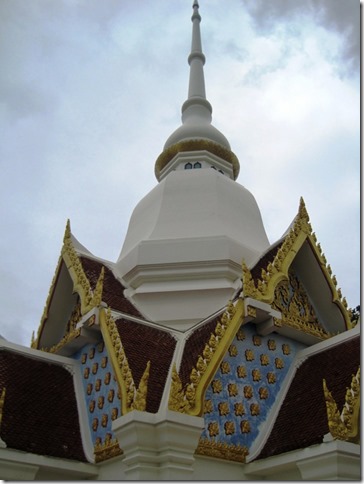
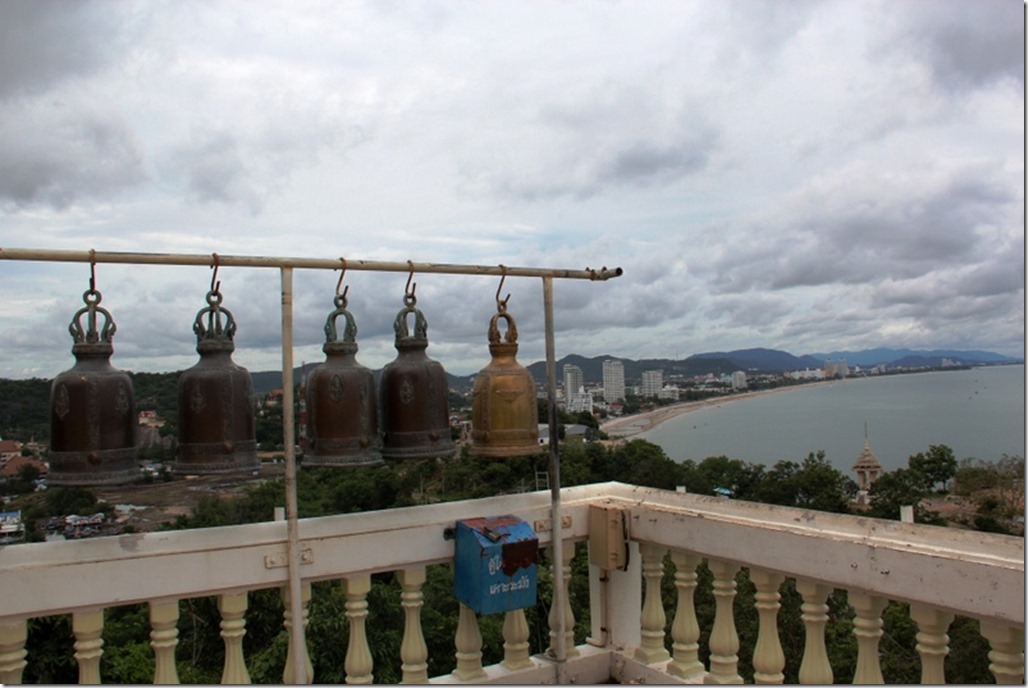
The parking lot area is even more interesting with an eclectic mix of Buddhist statues, including a Hungry Buddha and many-headed Buddha, dinosaur statues (seriously!), a prayer pagoda, souvenir and snack shops, and…
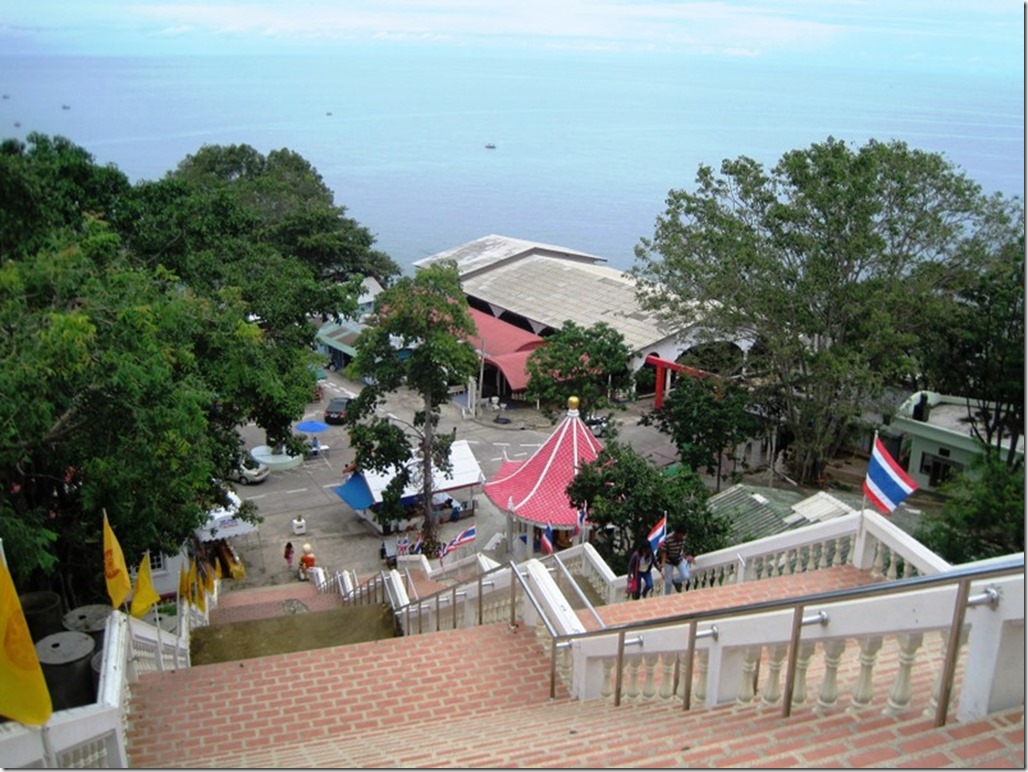
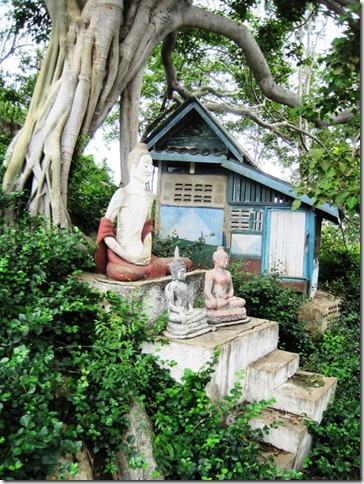
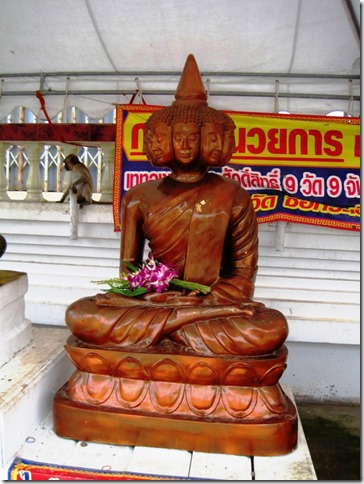
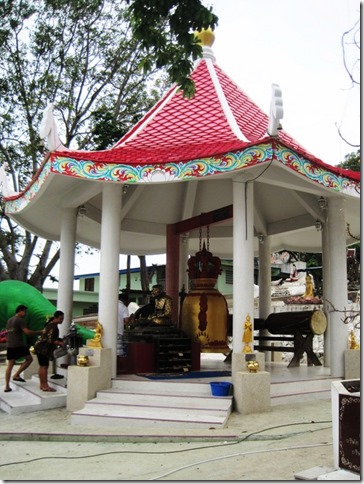
…monkeys! Hundreds, maybe thousands, of macaque monkeys live on the temple grounds. They are the inspiration for Monk the Monkey, one of the characters in my book Ellie the Elephant. People who work at the temple are the protectors of the macaques, who like to get too close to human comfort in their tireless search for food and drink. Tourists need to be careful because the monkeys target and steal bags, bottles, and anything else that looks like an easy meal. They’re not prone to bite but can become aggressive when the food runs out.
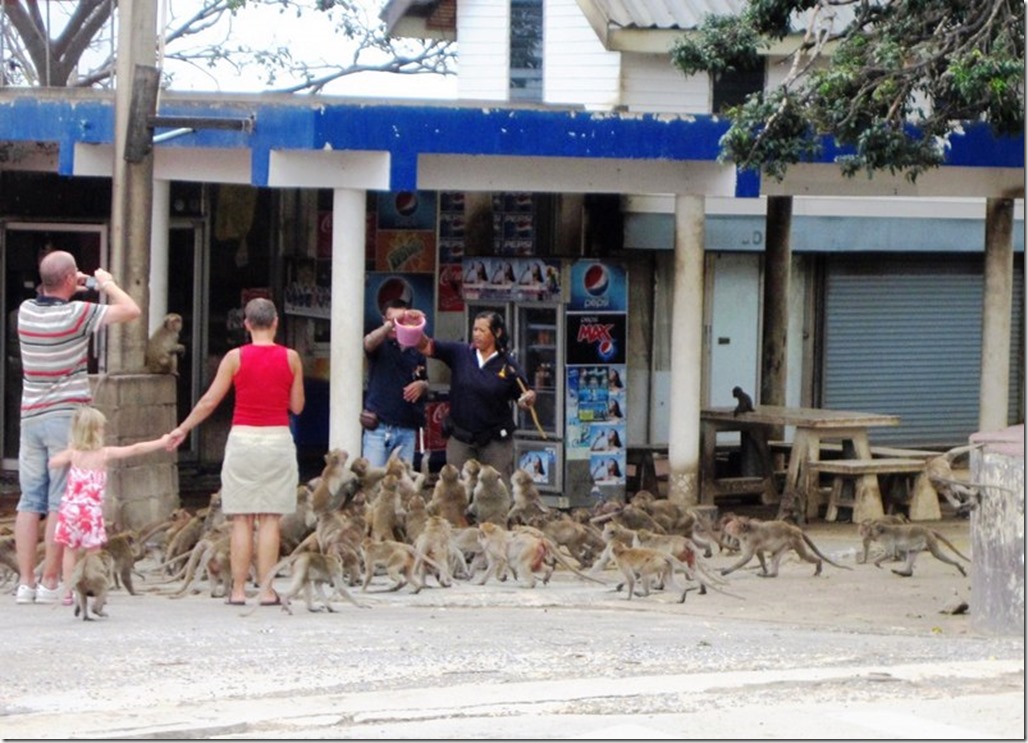
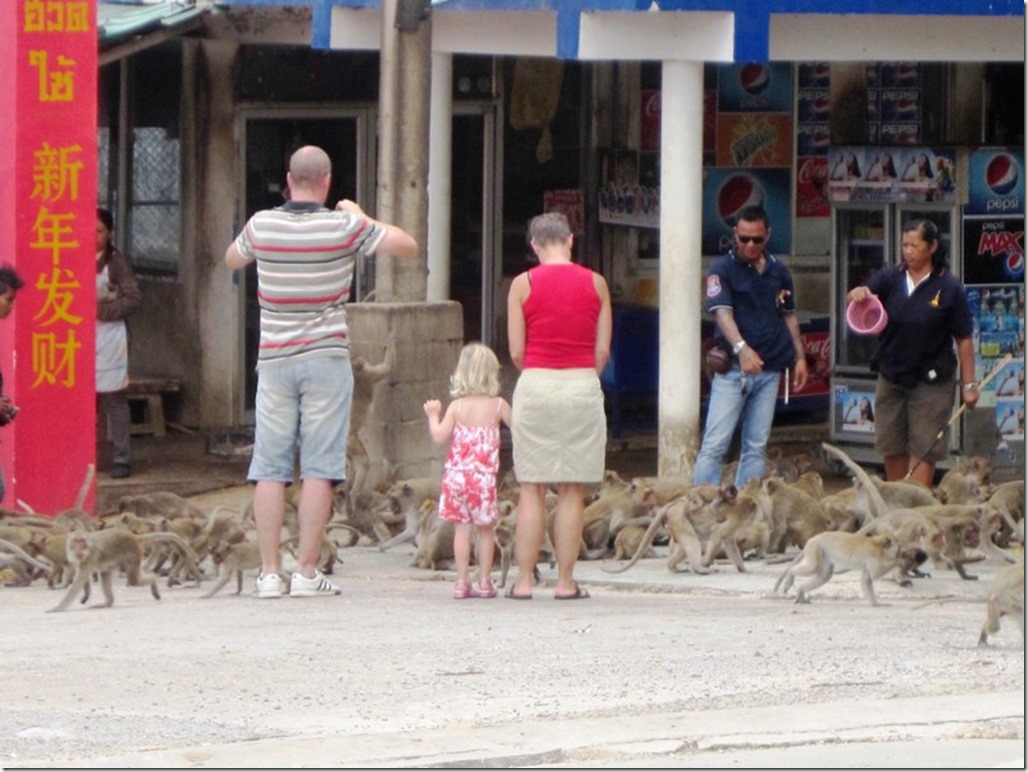
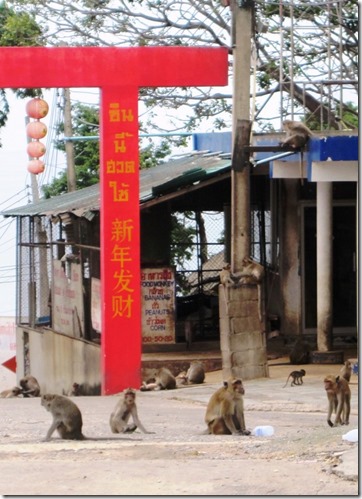
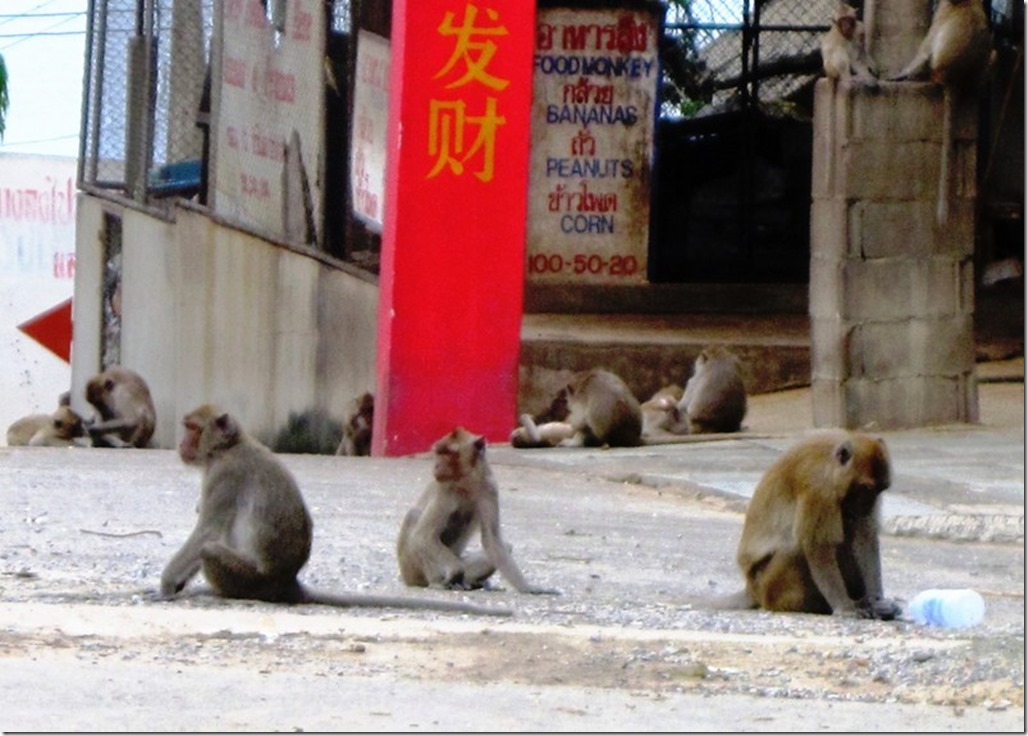
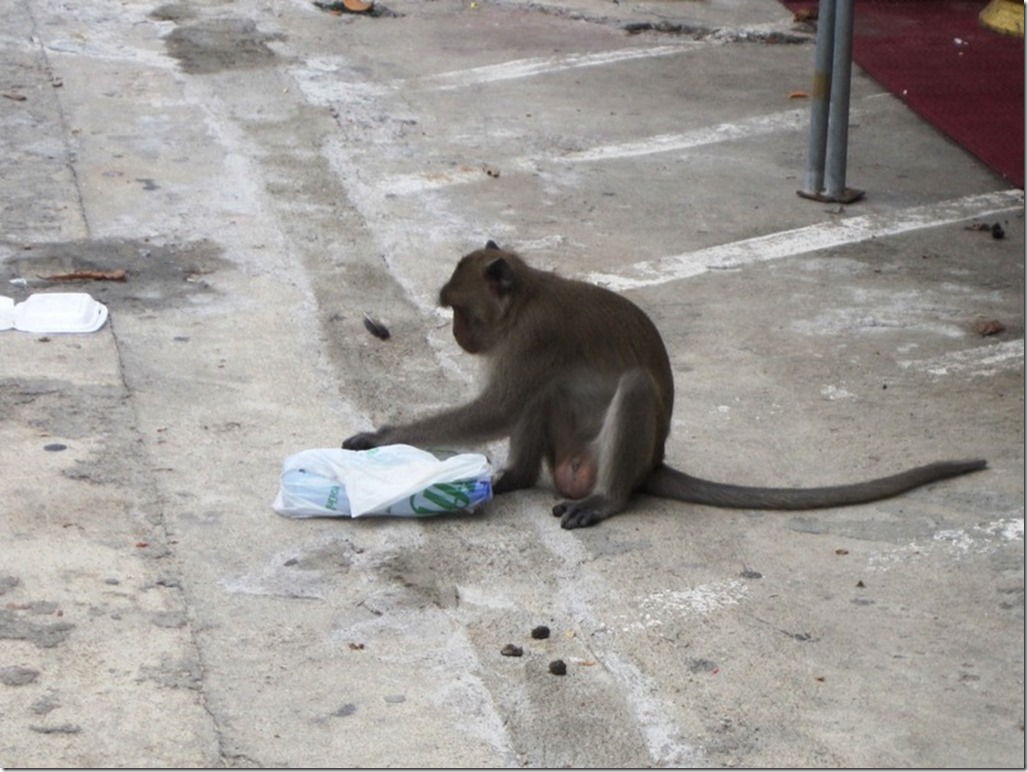
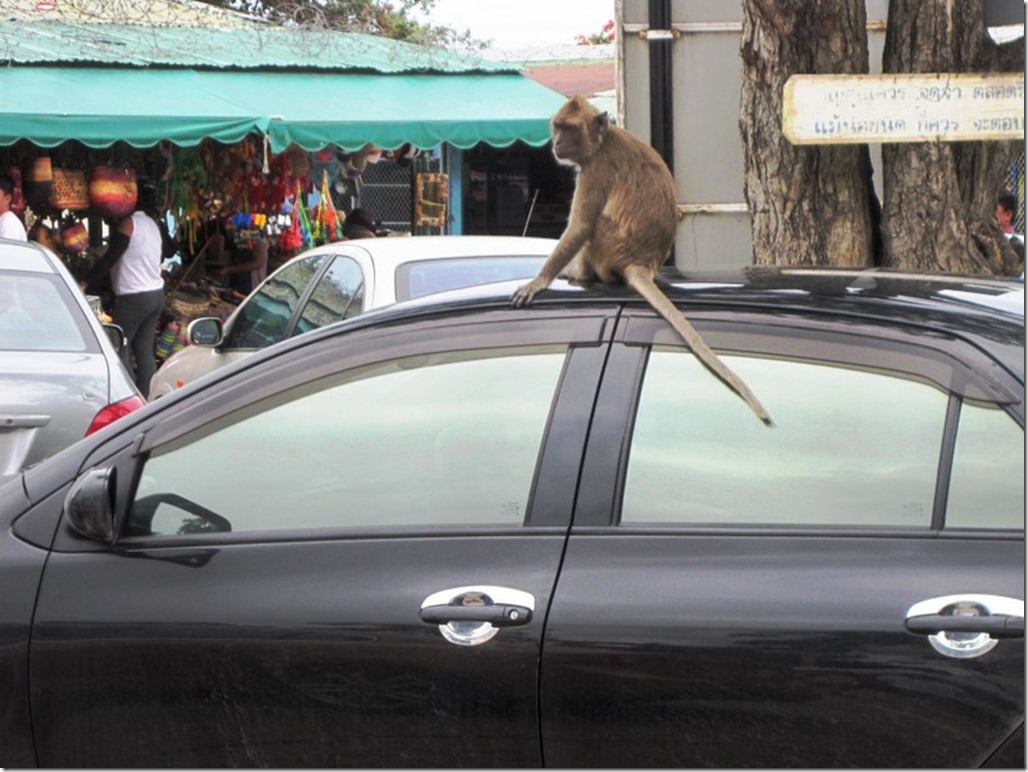
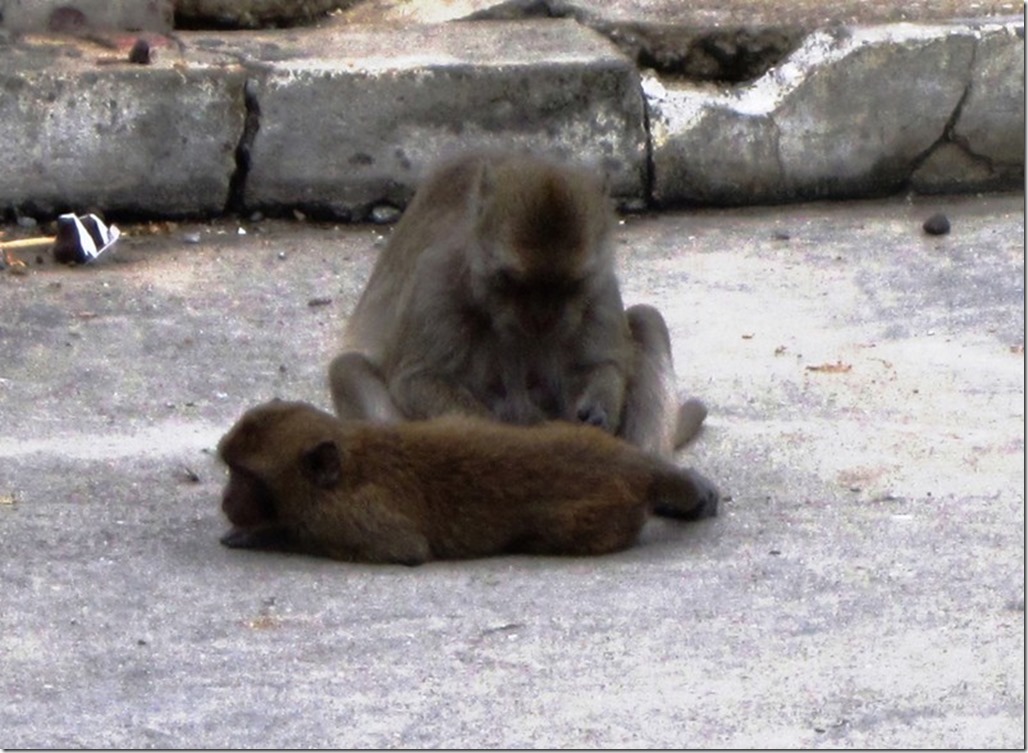
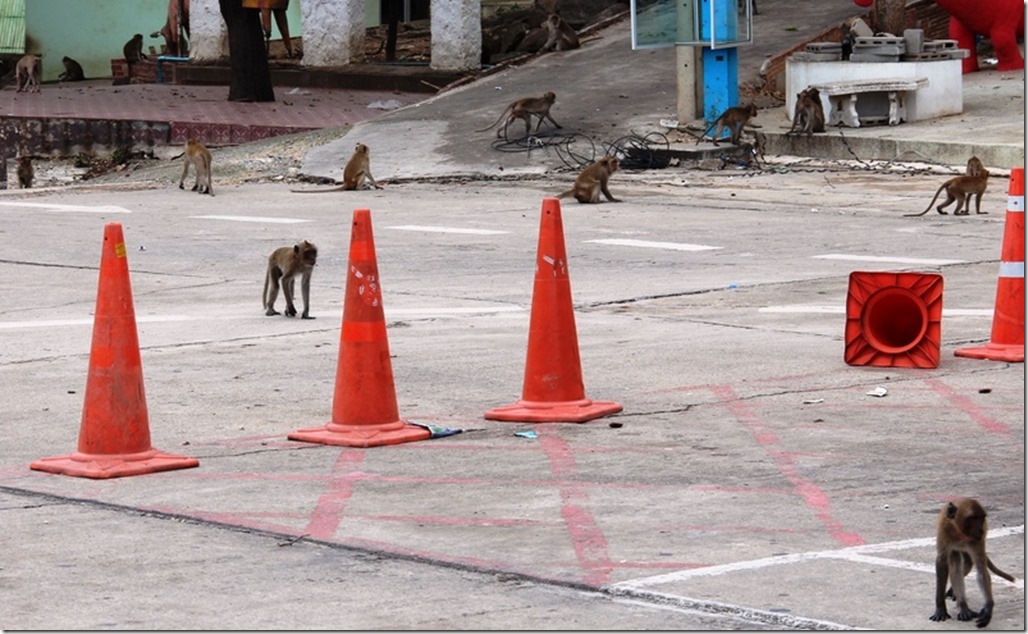
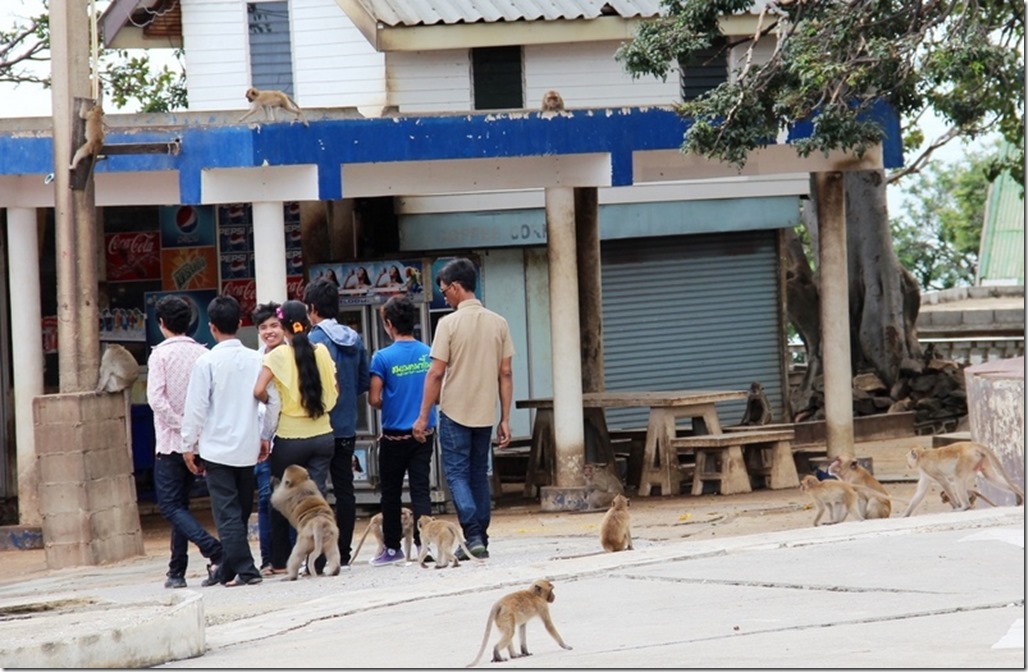
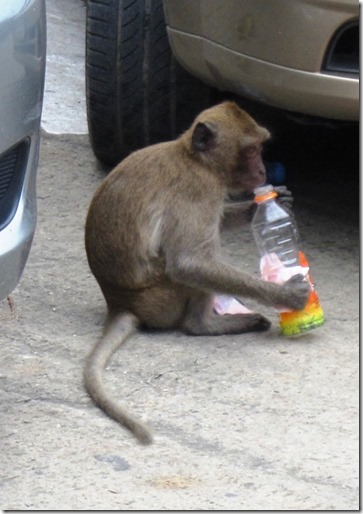
Here’s a picture of Monk the Monkey featured in Ellie the Elephant.
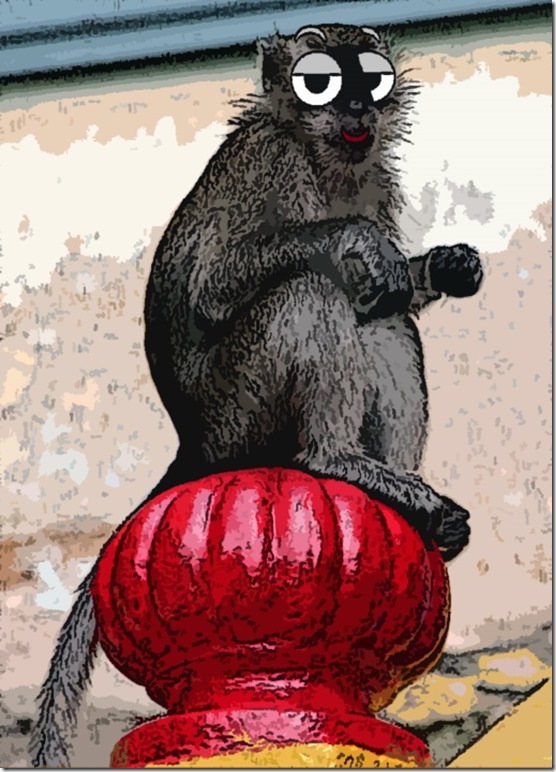
The chickens that wander freely around the parking lot don’t seem bothered by the monkeys. Why should they? Some are larger than a mid-sized macaque and mean serious business in their hunt for chicken feed.
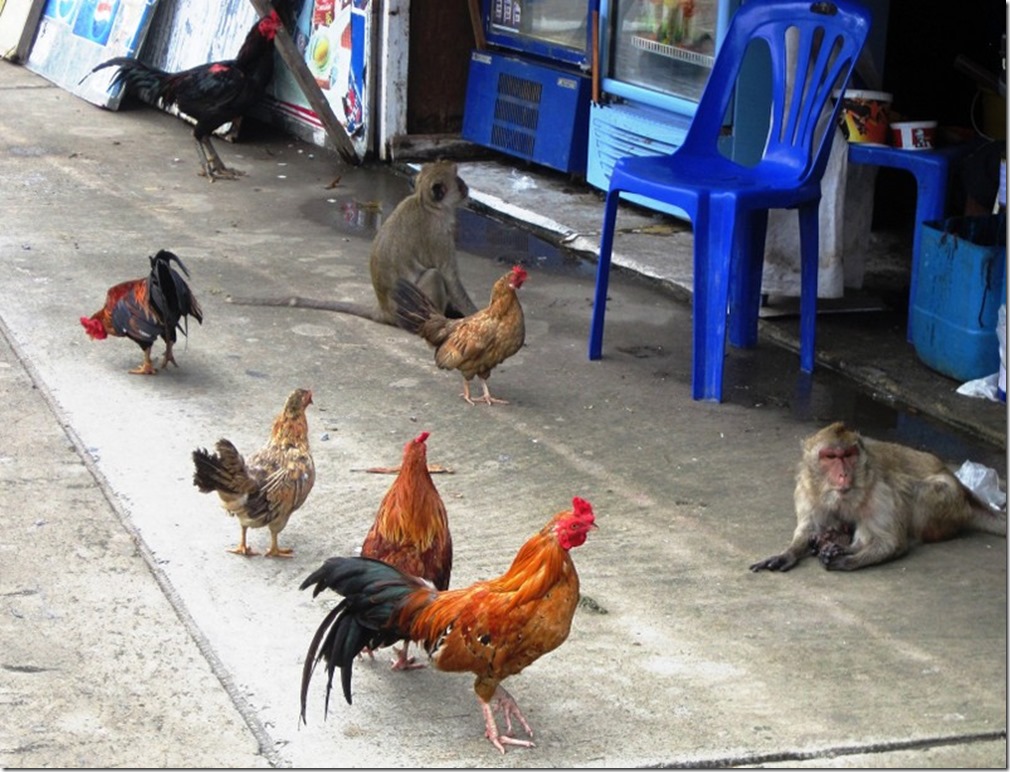
This rooster did not consider it a laughing manner when he crossed the road.
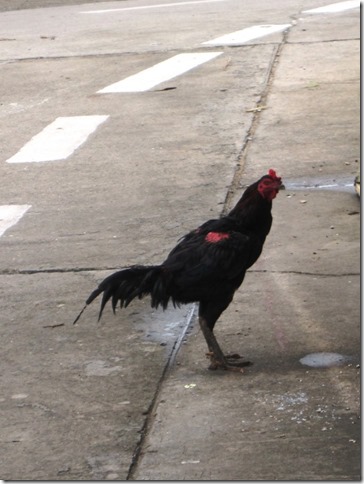
At the base of Chopsticks Hill is a large Golden Buddha standing 20 meters tall who looks out on the Gulf of Thailand with his arms outstretched. While he gave his blessing to the fishermen trolling the waters off the coast, we were blessed with delicious Thai food served by the outdoor restaurant at the base of the hill.
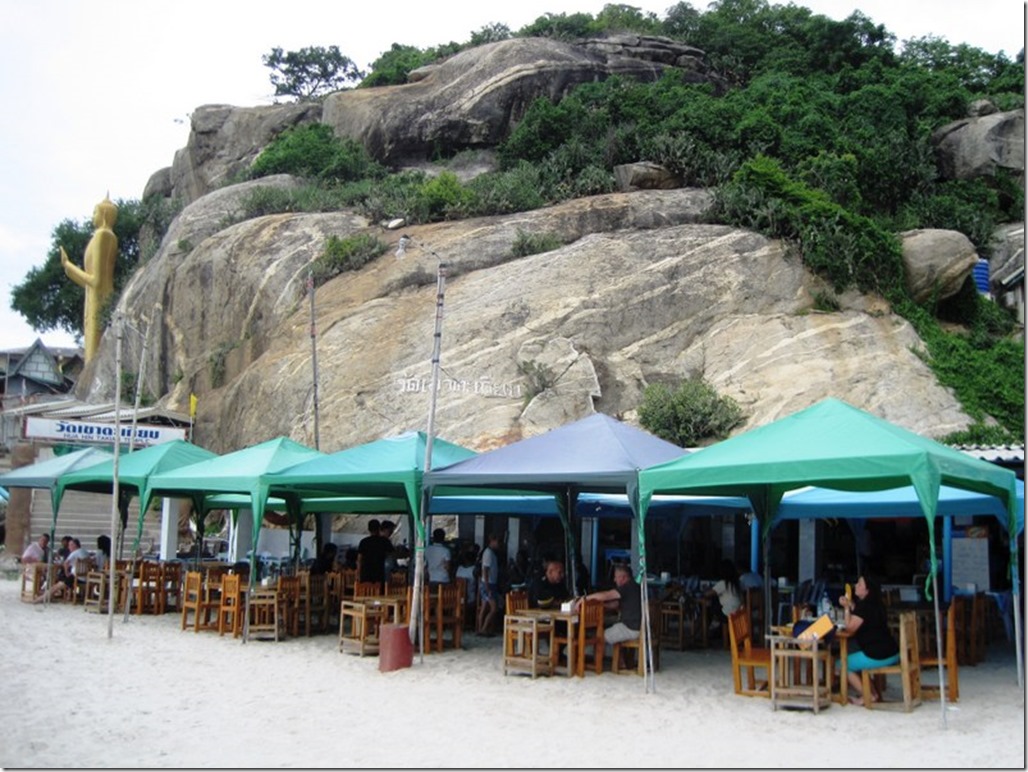
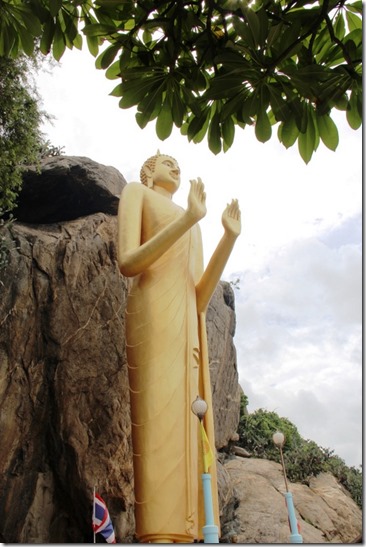
If you visit Wat Khao Takiap, don’t forget to give a donation. It could bring you good luck. Just leave it on this painted concrete block and someone will pick it up.
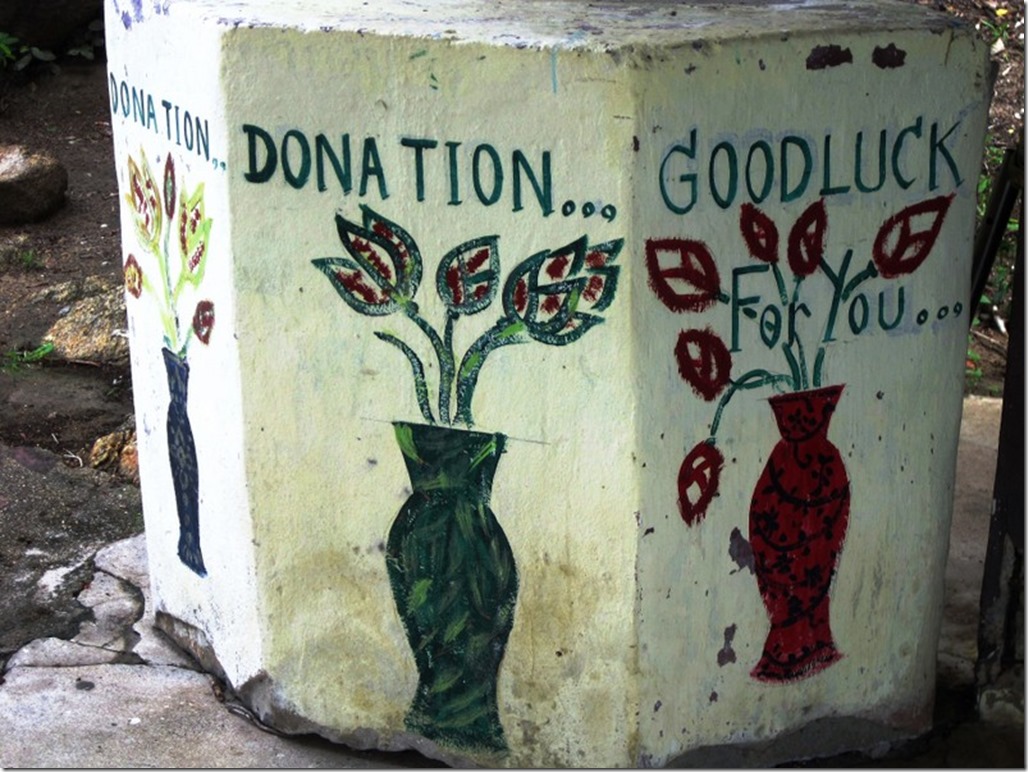
You’re in luck because Ellie the Elephant’s school, the Pachyderm School, is not far from Wat Khao Takiap. Stop by for an incredible adventure with Ellie!
Ellie the Elephant is now available as an e-book or in print from Amazon and other booksellers! Get your copy today!
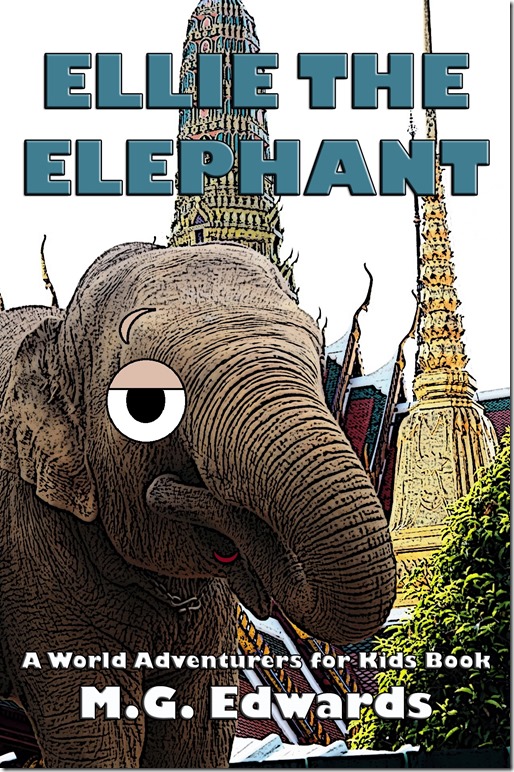
More about Hua Hin, Thailand
Hua Hin Town
Hua Hin Night Market
The Countryside near Hua Hin
Khao Takiap Village in Hua Hin
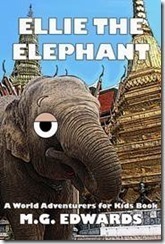 M.G. Edwards is a writer of books and stories in the mystery, thriller and science fiction-fantasy genres. He also writes travel adventures. He is author of Kilimanjaro: One Man’s Quest to Go Over the Hill, a non-fiction account of his attempt to summit Mount Kilimanjaro, Africa’s highest mountain, and a short story collection called Real Dreams: Thirty Years of Short Stories. He also wrote and illustrated Alexander the Salamander and Ellie the Elephant, two books in the World Adventurers for Kids Series. His books are available in e-book and print from Amazon.com and other booksellers. Edwards graduated from the University of Washington with a master’s degree in China Studies and a Master of Business Administration. He lives in Bangkok, Thailand with his wife Jing and son Alex.
M.G. Edwards is a writer of books and stories in the mystery, thriller and science fiction-fantasy genres. He also writes travel adventures. He is author of Kilimanjaro: One Man’s Quest to Go Over the Hill, a non-fiction account of his attempt to summit Mount Kilimanjaro, Africa’s highest mountain, and a short story collection called Real Dreams: Thirty Years of Short Stories. He also wrote and illustrated Alexander the Salamander and Ellie the Elephant, two books in the World Adventurers for Kids Series. His books are available in e-book and print from Amazon.com and other booksellers. Edwards graduated from the University of Washington with a master’s degree in China Studies and a Master of Business Administration. He lives in Bangkok, Thailand with his wife Jing and son Alex.
For more books or stories by M.G. Edwards, visit his web site at www.mgedwards.com or his blog, World Adventurers. Contact him at me@mgedwards.com, on Facebook, on Google+, or @m_g_edwards on Twitter.
© 2013 Brilliance Press. All rights reserved. No part of this work may be reproduced or transmitted without the written consent of the author.

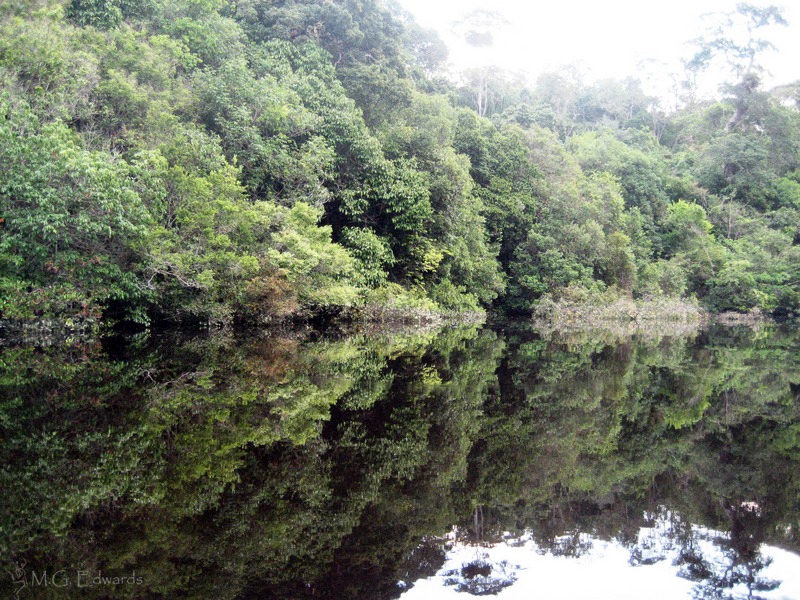

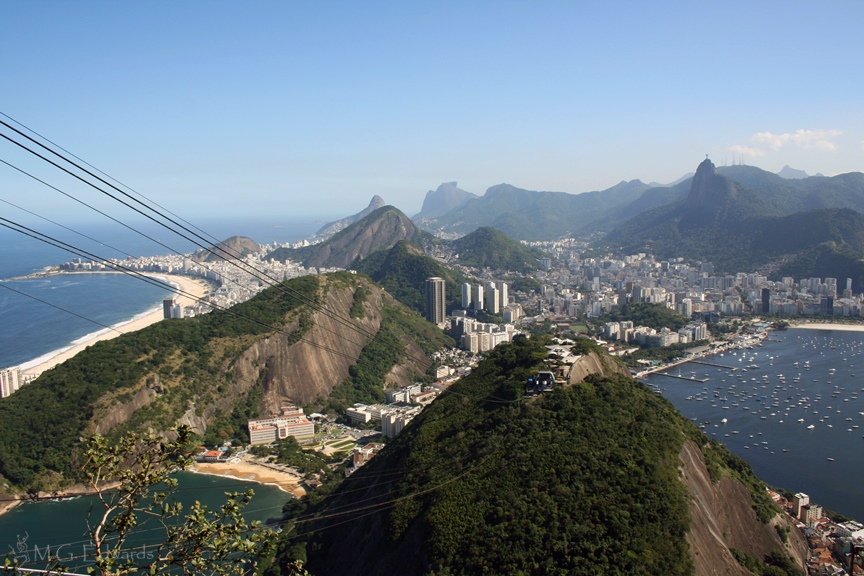
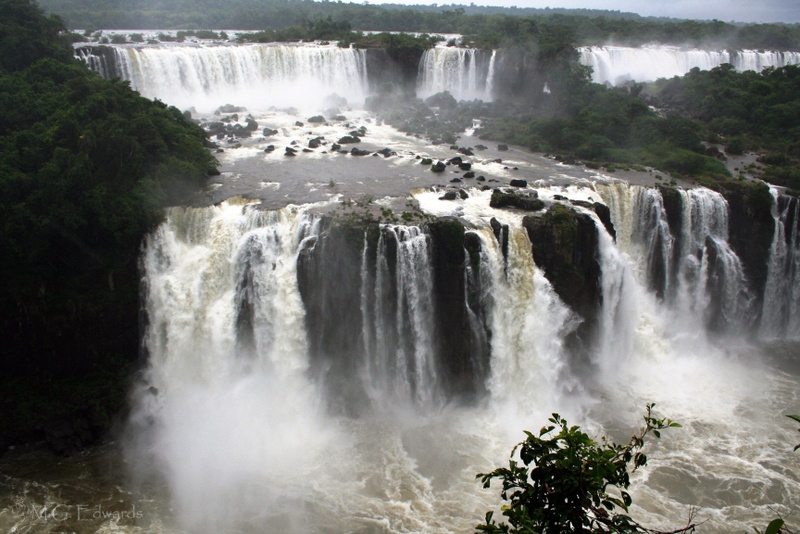
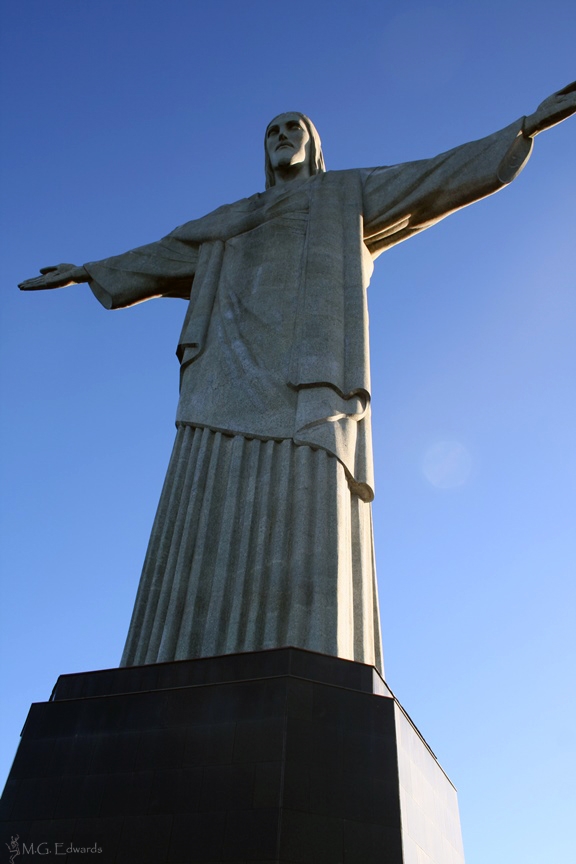
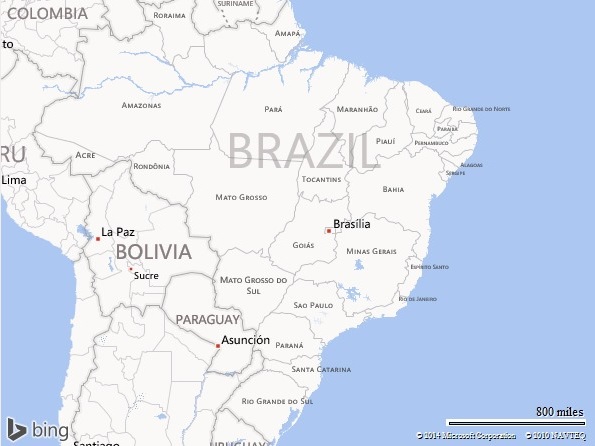











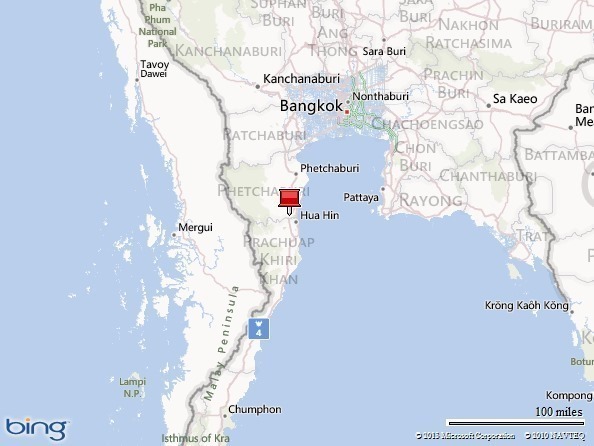
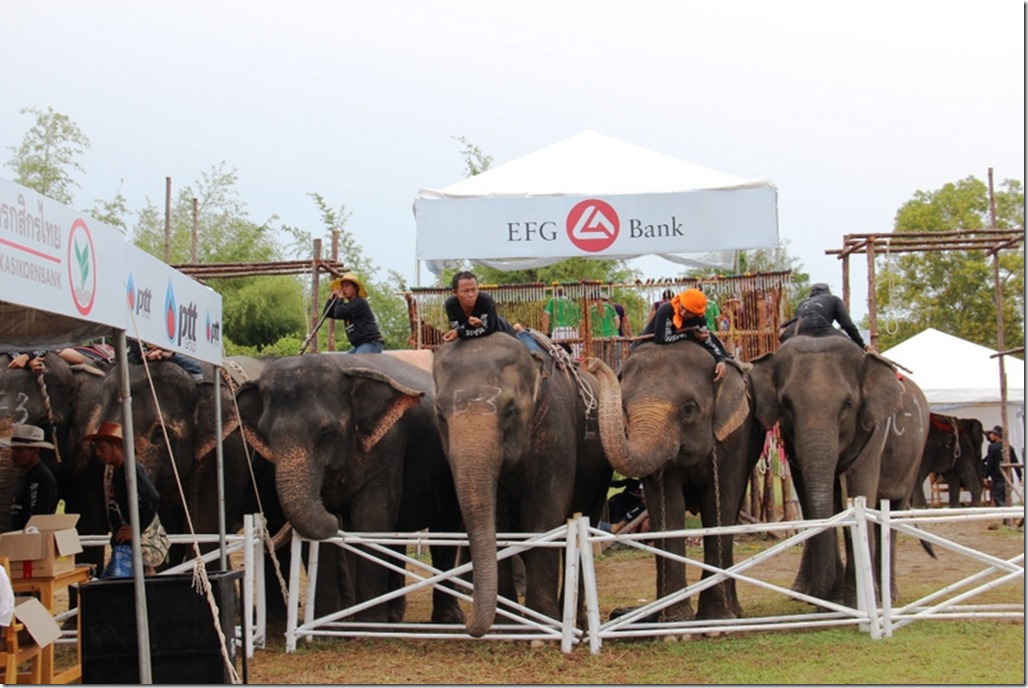
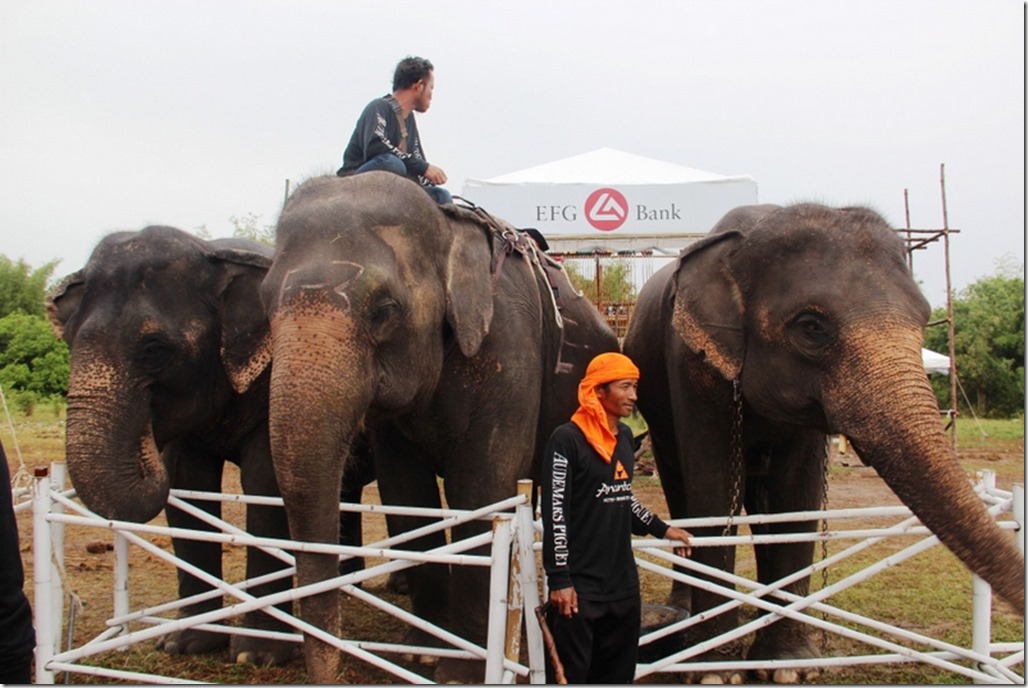
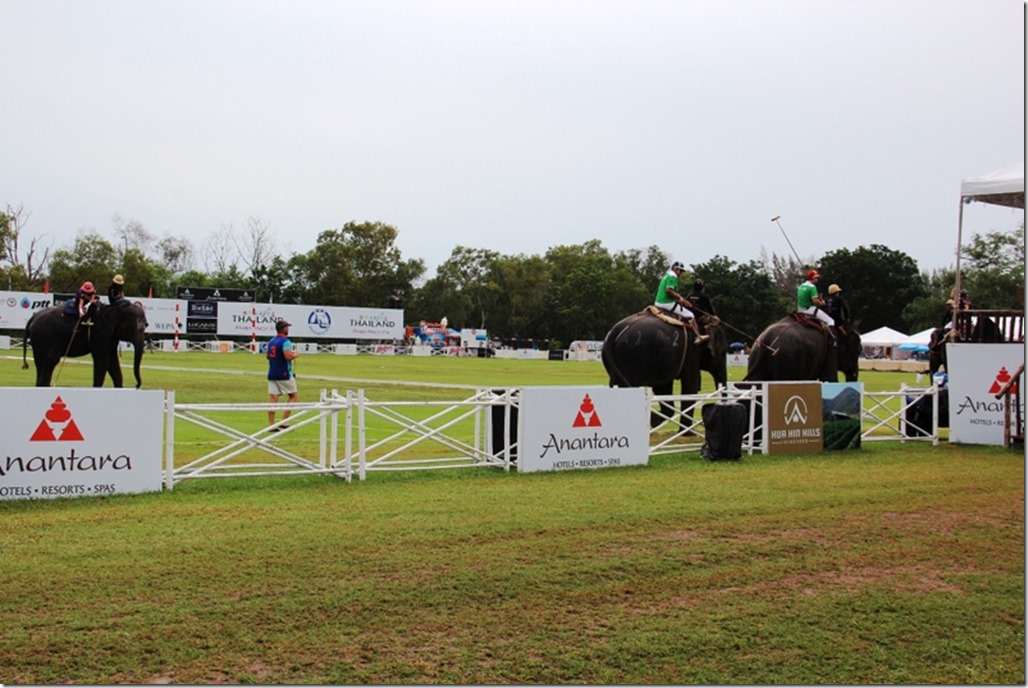
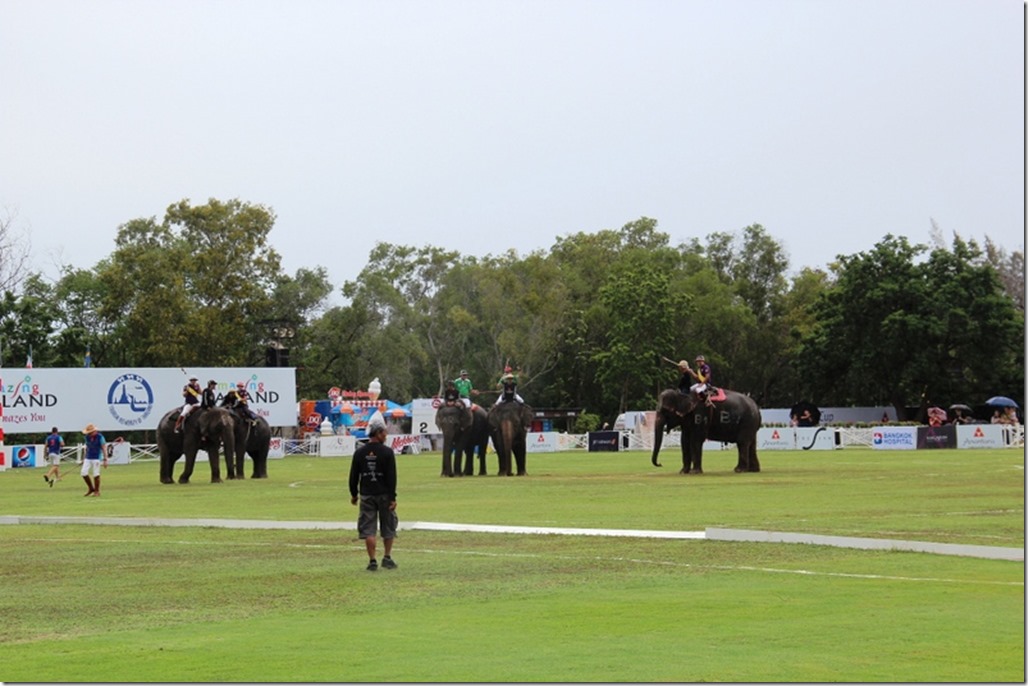
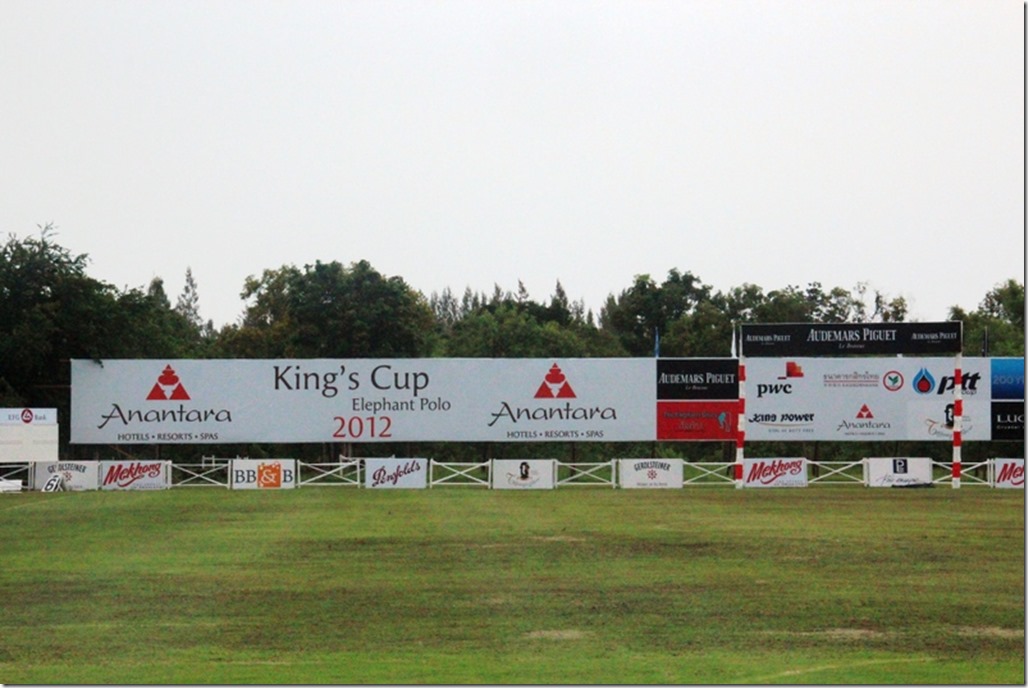
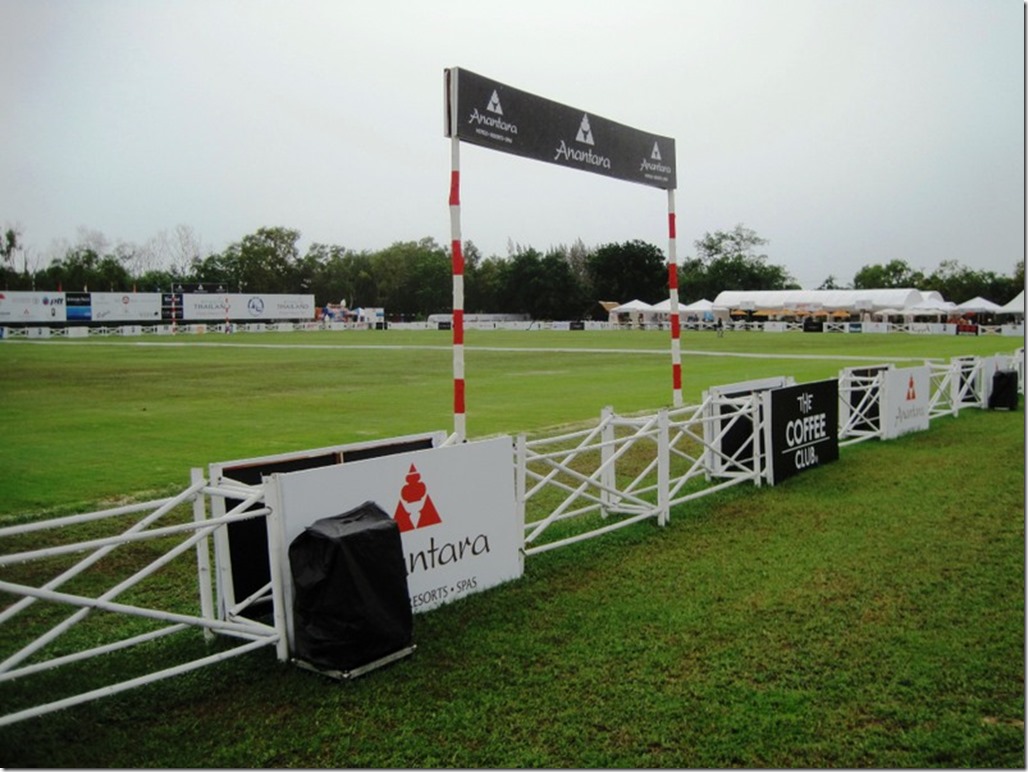
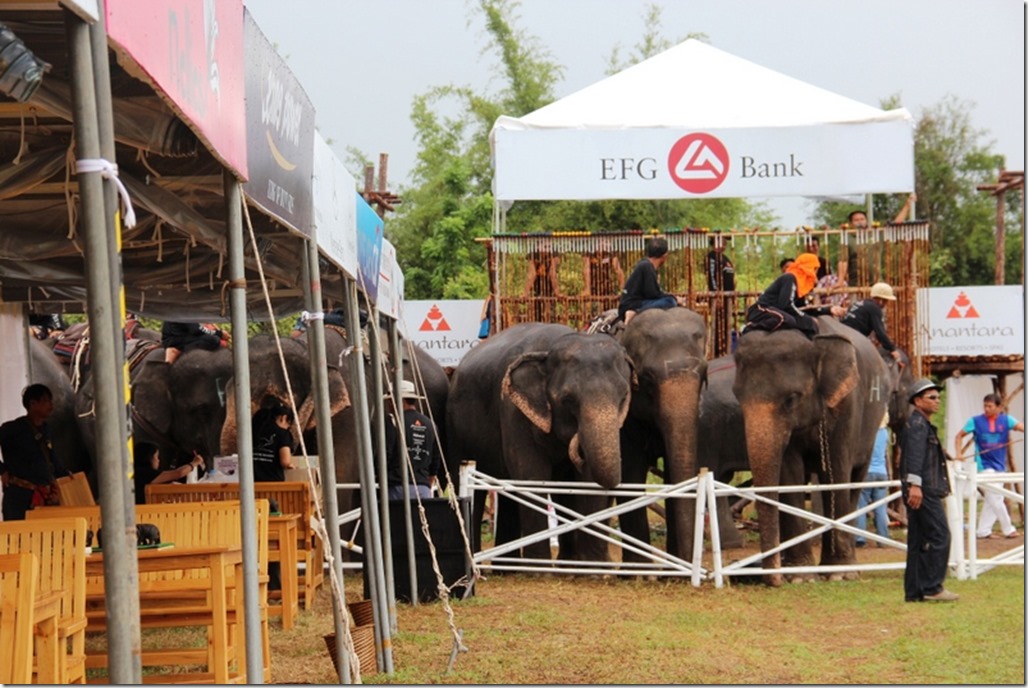
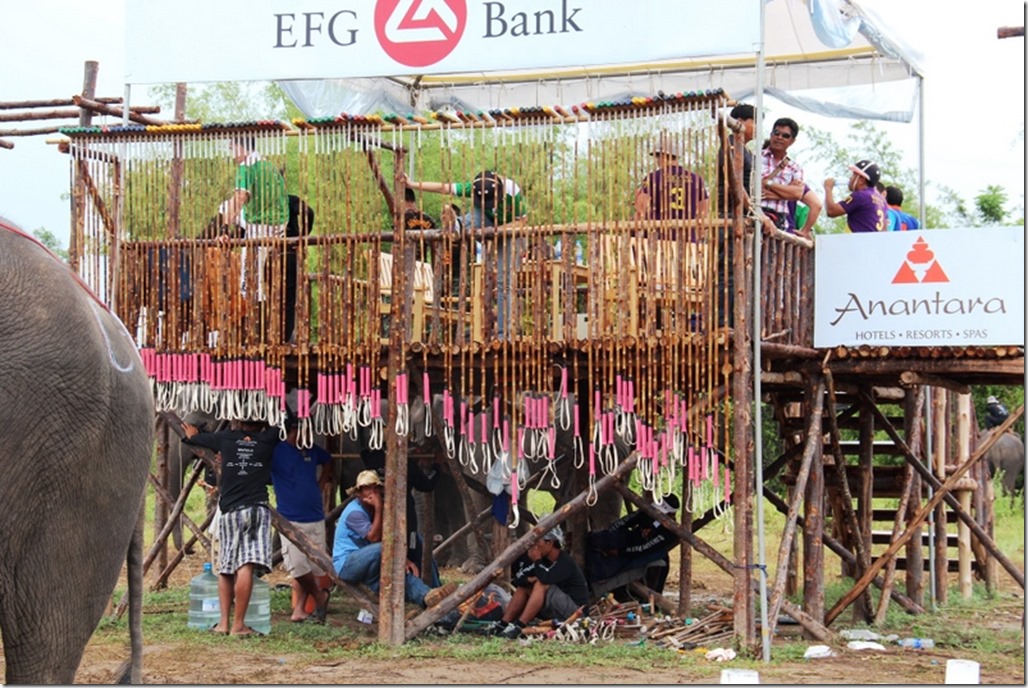
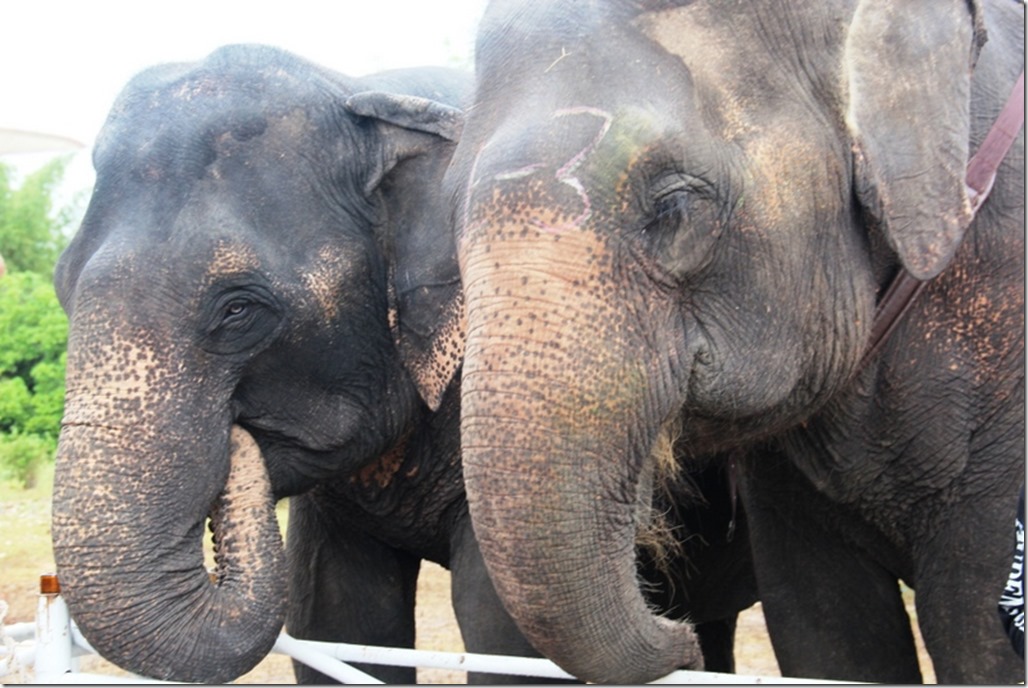
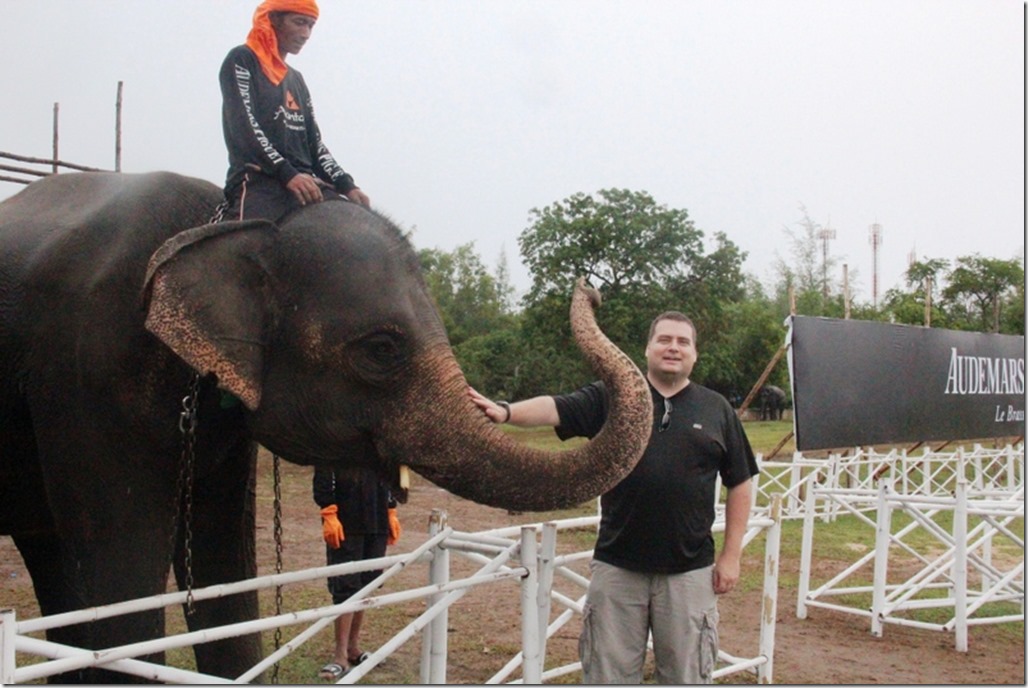
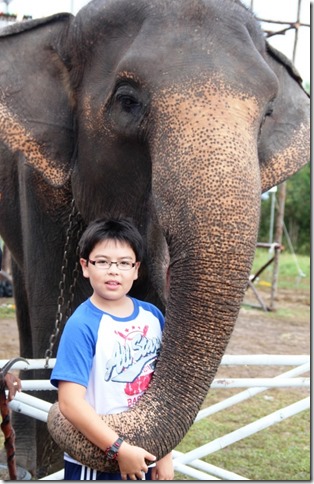
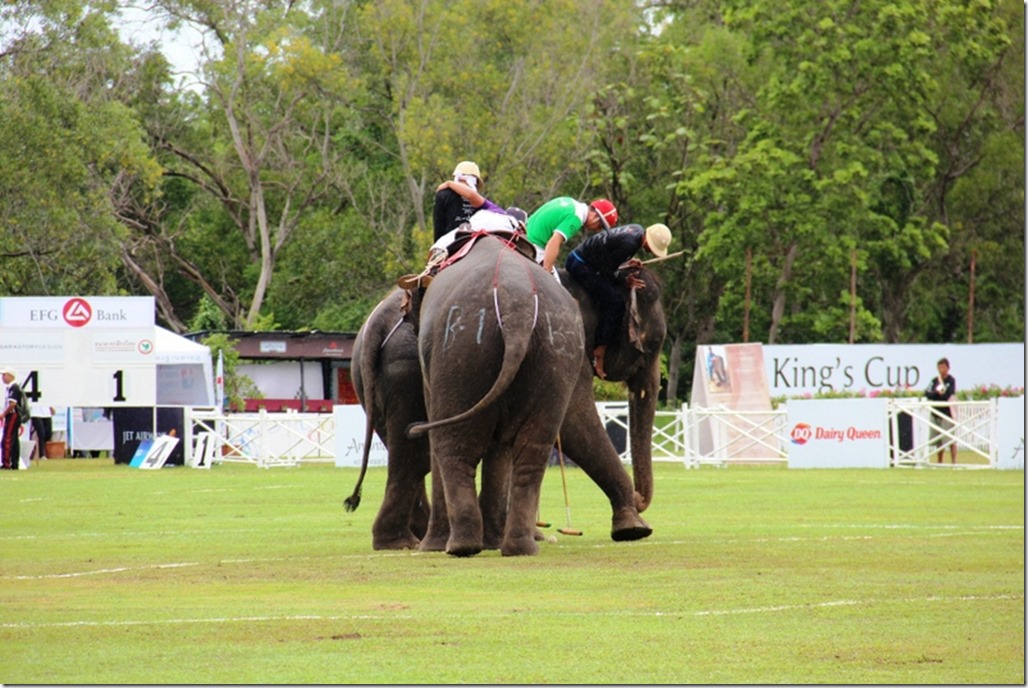
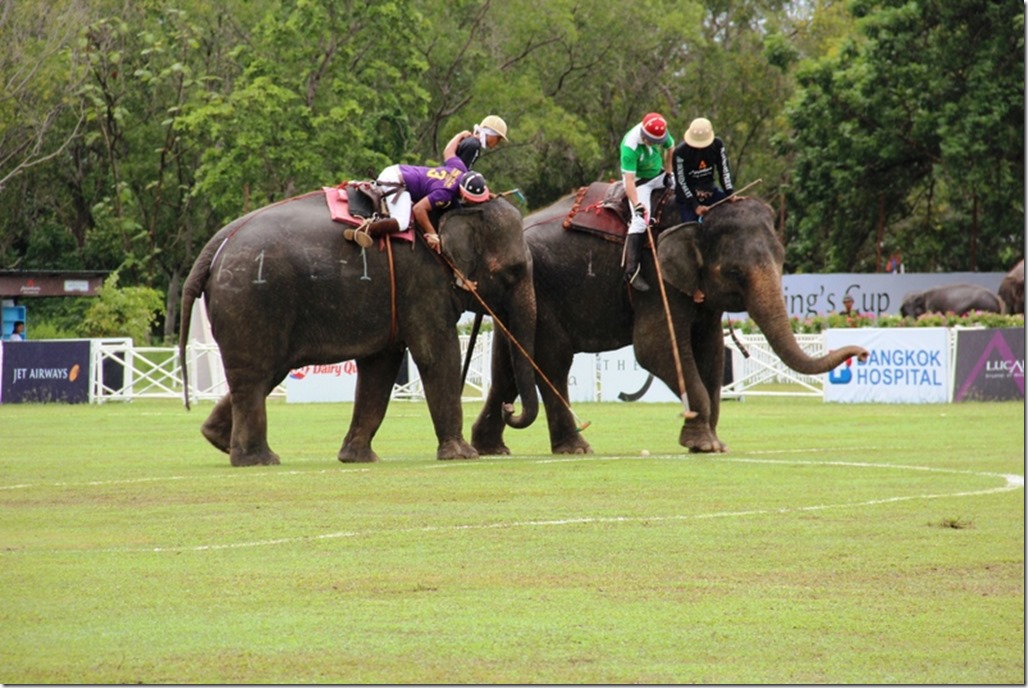
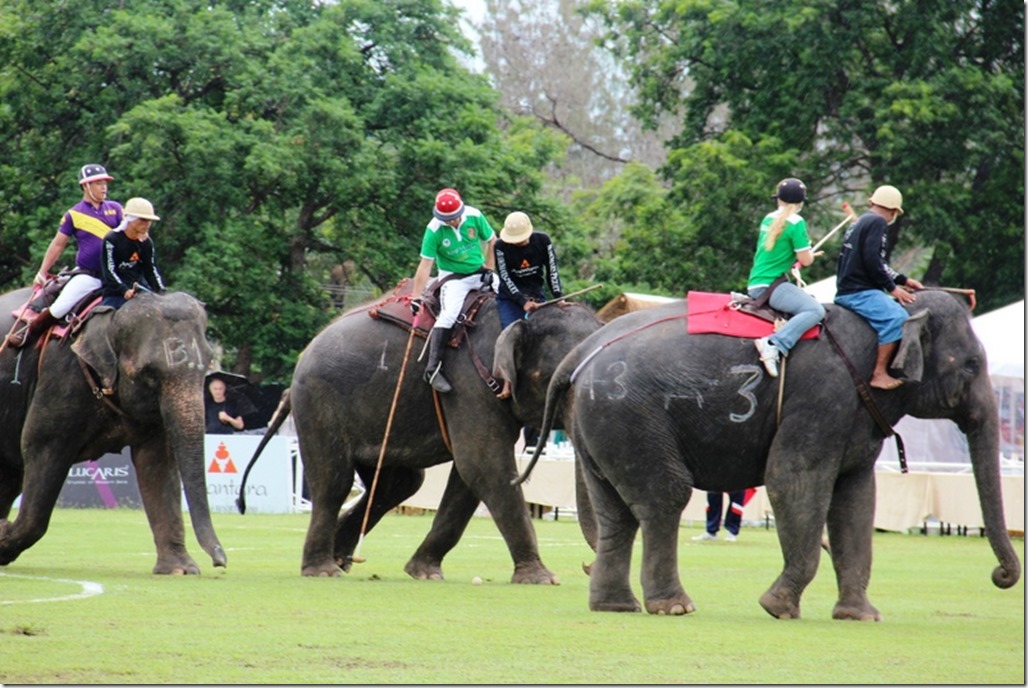
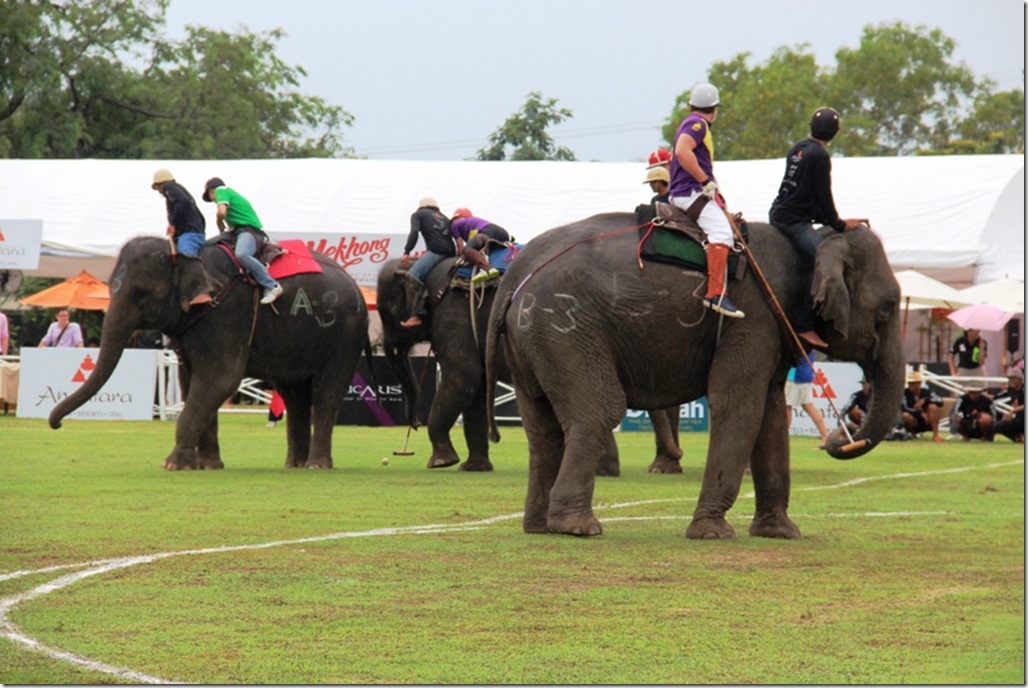
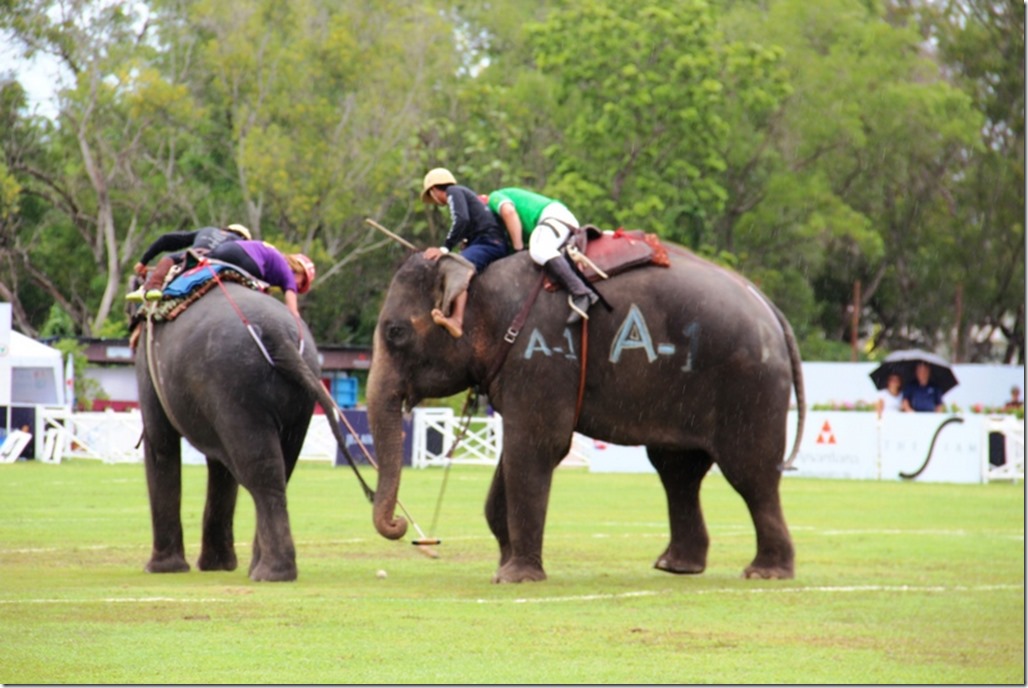
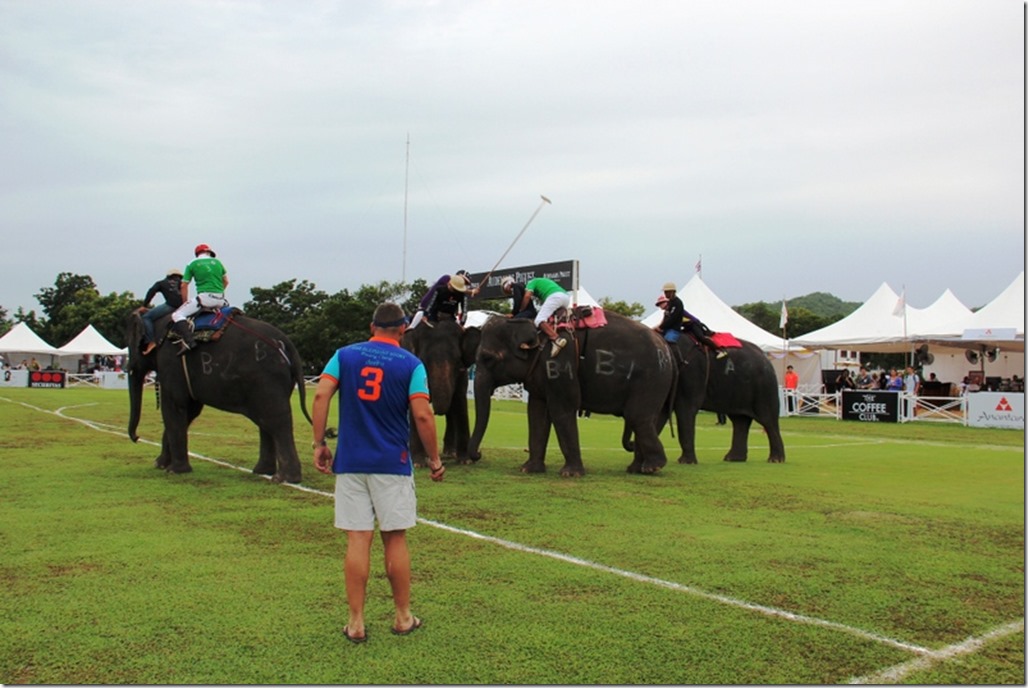
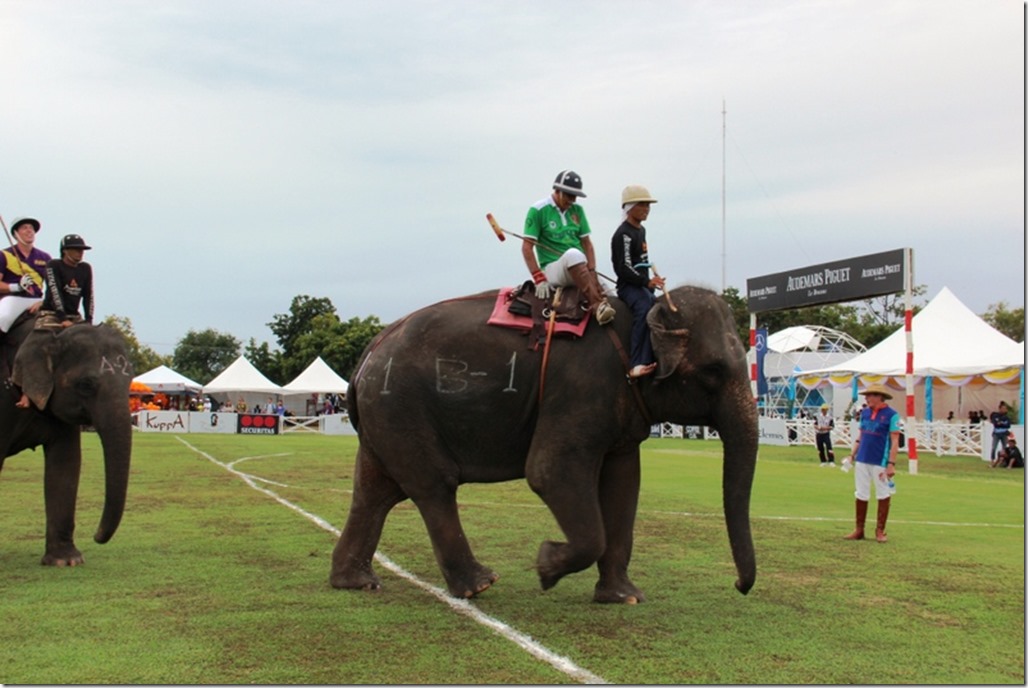
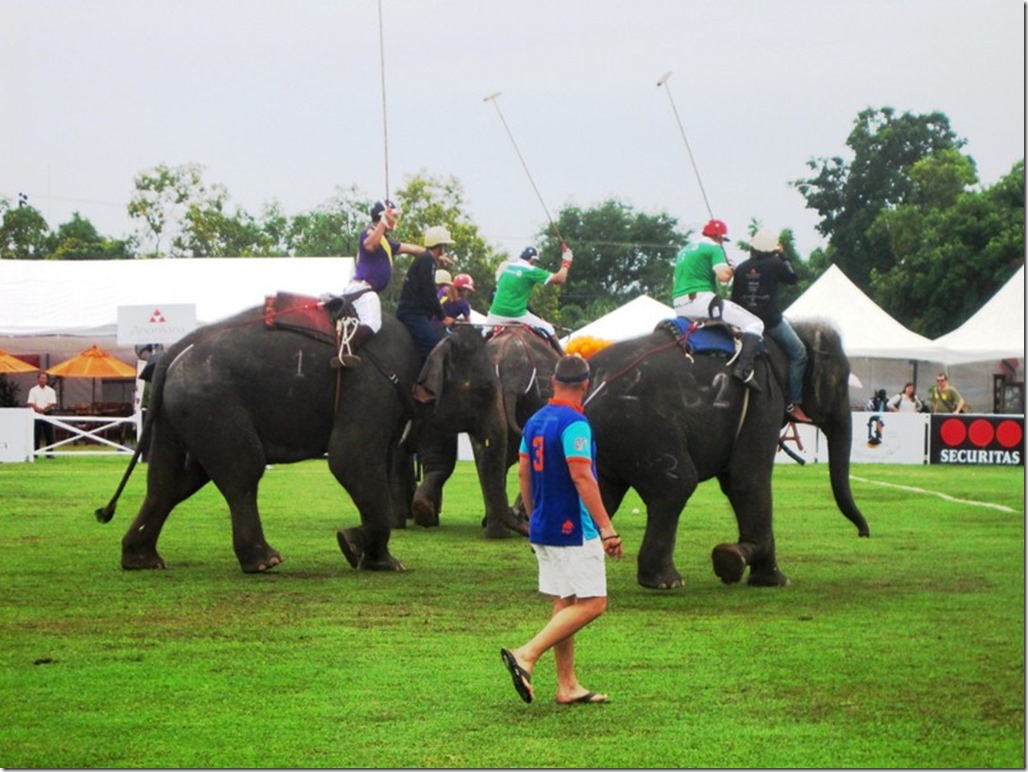
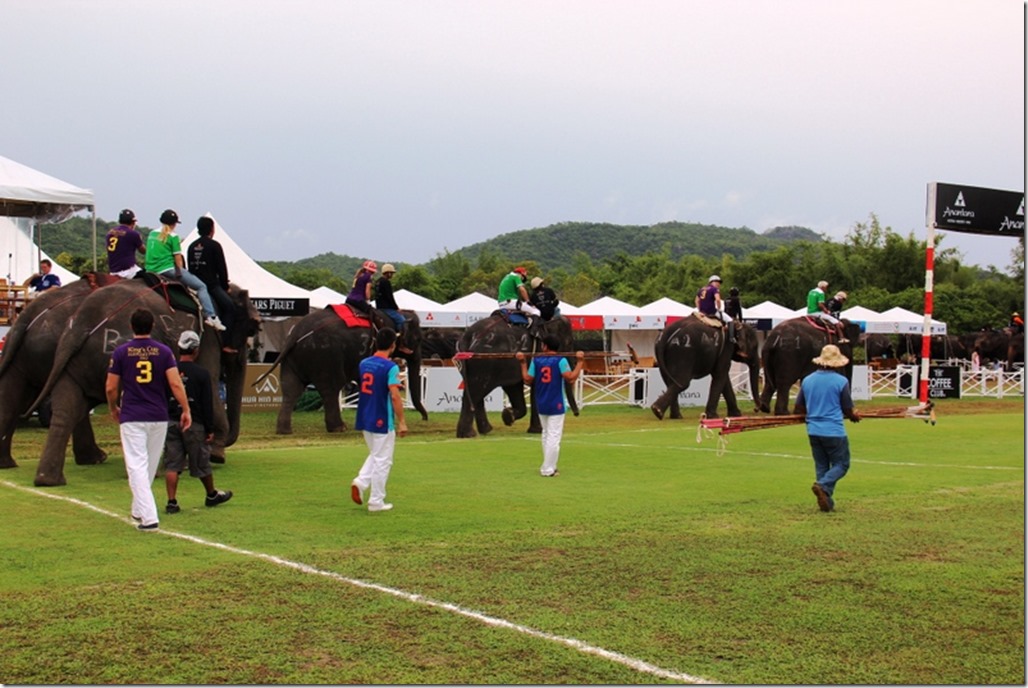
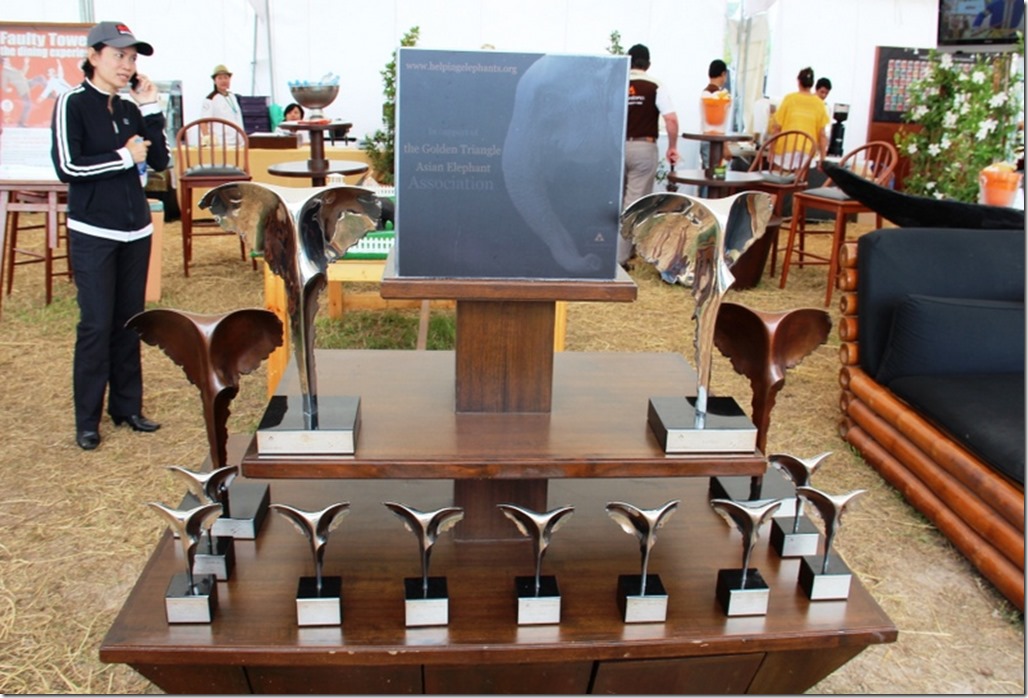
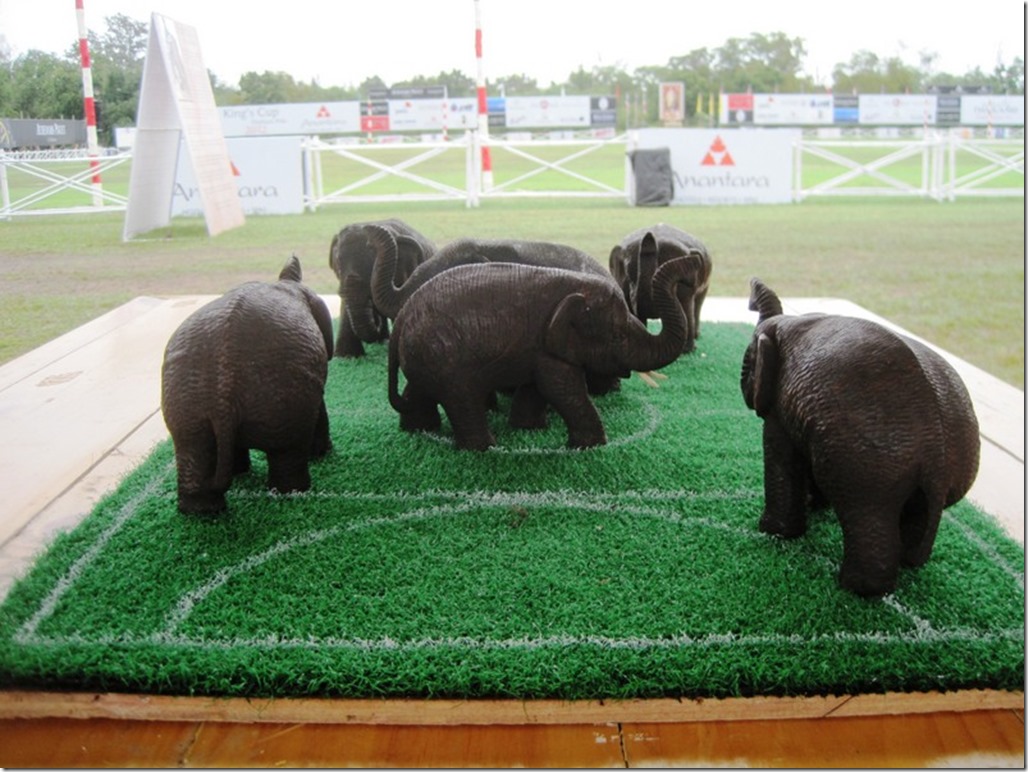
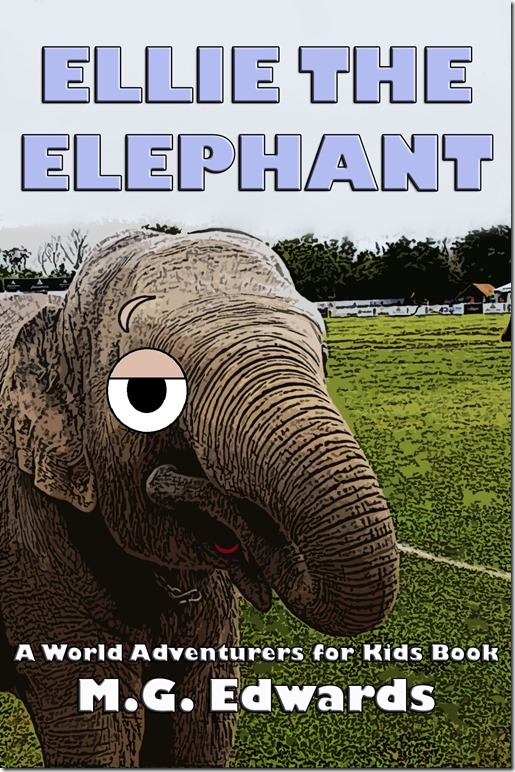





























![map-ddaf71d935e422[2] map-ddaf71d935e422[2]](https://www.mgedwards.com/wp-content/uploads/2013/06/map-ddaf71d935e4222.jpg)